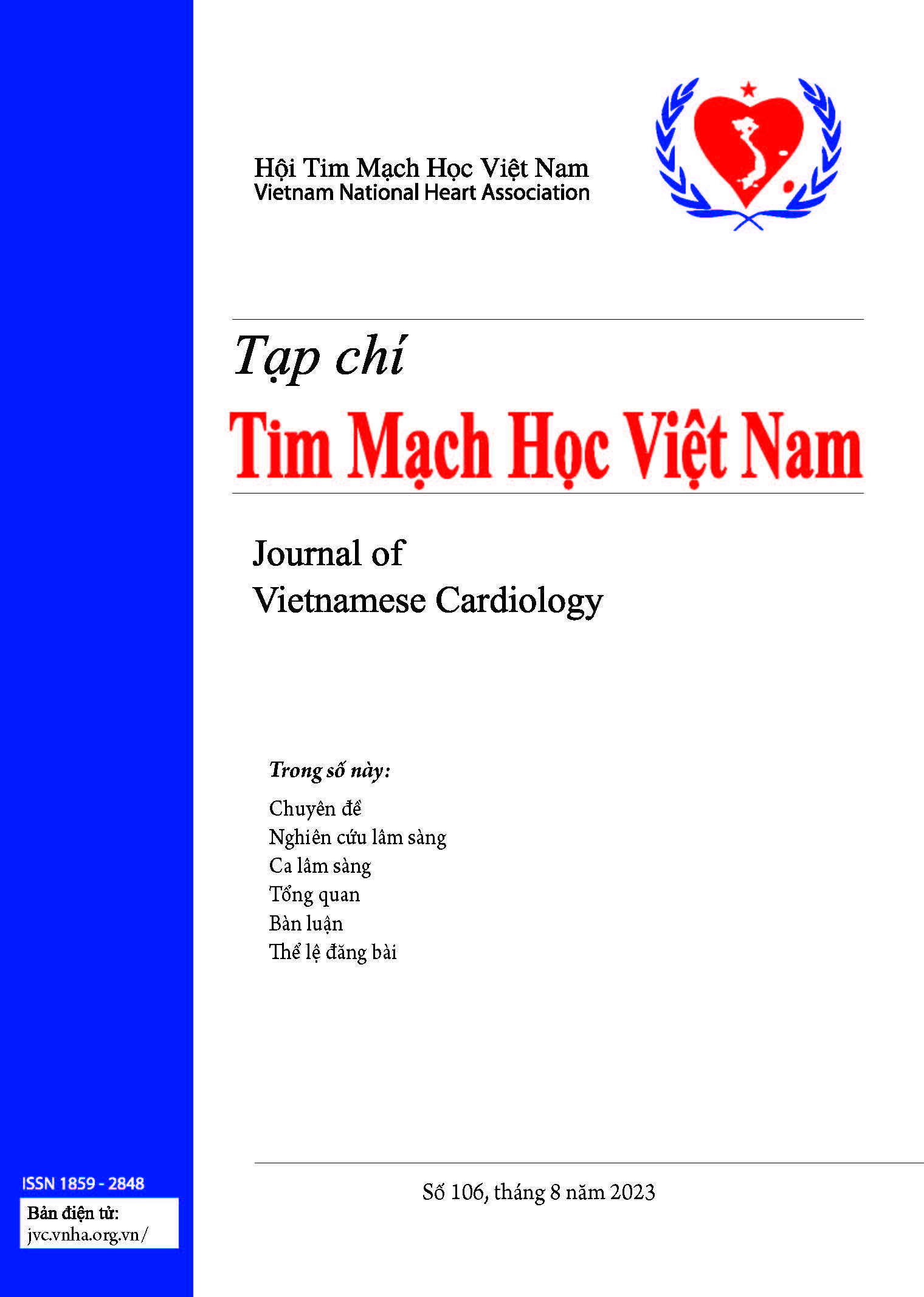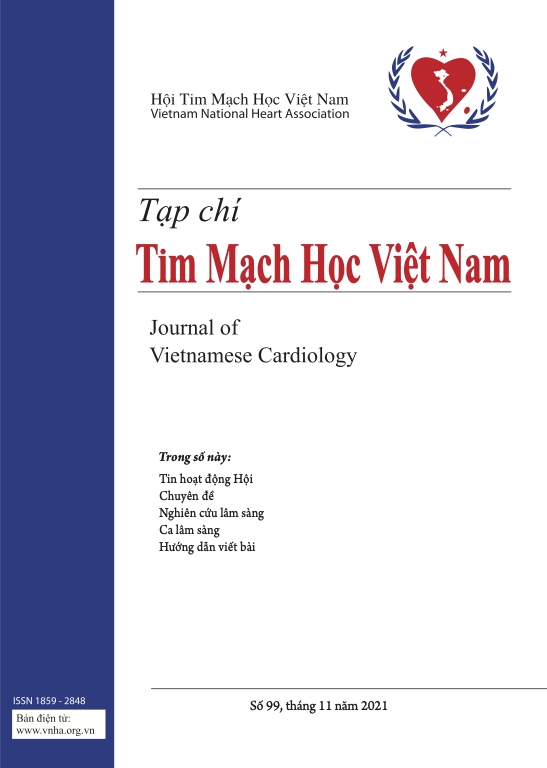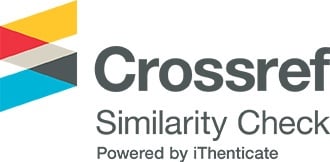Ứng dụng hệ gen thuốc trong điều trị rối loạn lipid máu
DOI:
https://doi.org/10.58354/jvc.106.2023.474Từ khóa:
Di truyền dược lý, Hệ gen dược lý, Rối loạn lipid máuTóm tắt
Bài tổng quan trình bày những khái niệm về hệ gen và di truyền dược lý trong thực hành lâm sàng, sau đó tìm hiểu hệ gen thuốc trong điều trị rối loạn lipid máu. Thuốc statin là thuốc được lựa chọn đầu tiên trong điều trị rối loạn lipid máu, giảm nguy cơ các bệnh lý tim mạch, tiếp đó là nhóm thuốc không thuộc statin và hiện nay liệu pháp điều trị mới cho hạ lipid máu đã và đang được phát triển. Nội dung bài sẽ cung cấp các thông tin về biến thể hệ gen liên quan đến dược động học và dược lực học của thuốc điều trị rối loạn lipid máu, các biến thể gen gây giảm, mất, tăng chức năng ảnh hưởng đến chuyển hóa, vận chuyển các chất, đây là căn cứ để lựa chọn thuốc và điều chỉnh liều phù hợp. Các gen thuốc điều trị rối loạn lipid máu thường gặp là ABCG2, CYP3A4, HMGCR, LDLR, SLCO1B1…FDA khuyến cáo thực hành hệ gen thuốc trong điều trị, thông tin tra cứu tham khảo trực tuyến tại PhamGKB và theo hướng dẫn thực hành của một số tổ chức hiệp hội thế giới về hệ gen thuốc như CPIC (Mỹ), DPWG (Hà Lan)…
Tài liệu tham khảo
Najmeh Ahangari, Mohammad Doosti, Majid Ghayour Mobarhan, Amirhossein Sahebkar, Gordon A. Ferns & Alireza Pasdar. Personalised medicine in hypercholesterolaemia: the role of pharmacogenetics in statin therapy. Annals of Medicine: 2020, 52:8, 462-470.
![]()
Nagham N. Hindi 1,†, Jamil Alenbawi 1,† and Georges Nemer. Pharmacogenomics Variability of Lipid-Lowering Therapies in Familial Hypercholesterolemia. 2021, 11, 877.
![]()
Alfonsi JE, Hegele RA, Gryn SE. Pharmacogenetics of lipid-lowering agents: precision or indecision medicine? Curr Atheroscler Rep. 2016;18(5):24.
![]()
Mach F, Baigent C, Catapano AL, et al.; ESC Scientific Document Group. 2019 ESC/EAS Guidelines for the management of dyslipidaemias: lipid modification to reduce cardiovascular risk: The Task Force for the management of dyslipidaemias of the European Society of Cardiology (ESC) and European Atherosclerosis Society (EAS). Eur Heart J. 2020;41(1): 111-188.
![]()
Mitchell D, Guertin JR, Iliza AC, et al. Economic evaluation of a pharmacogenomics test for statin-induced myopathy in cardiovascular high-risk patients initiating a statin. Mol Diagn Ther. 2017;21(1):95-105.
![]()
Kitzmiller JP, Mikulik EB, Dauki AM, et al. Pharmacogenomics of statins: understanding susceptibility to adverse effects. Pharmgenomics Pers Med. 2016;9:97-106.
![]()
Poduri A, Khullar M, Bahl A, et al. Common variants of HMGCR, CETP, APOAI, ABCB1, CYP3A4, and CYP7A1 genes as predictors of lipid-lowering response to atorvastatin therapy. DNA and Cell Biology. 2010;29(10): 629-637.
![]()
Tornio A, Vakkilainen J, Neuvonen M, et al. SLCO1B1 polymorphism markedly affects the pharmacokinetics of lovastatin acid. Pharmacogenet Genomics. 2015; 25(8):382-387.
![]()
Kozyra M, Ingelman-Sundberg M, Lauschke VM. Rare genetic variants in cellular transporters, metabolic enzymes, and nuclear receptors can be important determinants of interindividual differences in drug response. Genet Med. 2017;19(1):20-29.
![]()
Ingelman-Sundberg M, Mkrtchian S, Zhou Y, et al. Integrating rare genetic variants into pharmacogenetic drug response predictions. Hum Genomics. 2018;12(1):26.
![]()
Rubino, J.; MacDougall, D.E.; Sterling, L.R.; Hanselman, J.C.; Nicholls, S.J. Combination of bempedoic acid, ezetimibe, and atorvastatin in patients with hypercholesterolemia: A randomized clinical trial. Atherosclerosis 2021, 320, 122-128.
![]()
Kuehn, B.M. Evinacumab Approval Adds a New Option for Homozygous Familial Hypercholesterolemia with a Hefty Price Tag. Circulation 2021, 143, 2494-2496.
![]()
Wang, L.; Muthuramu, I.; Somanathan, S.; Zhang, H.; Bell, P.; He, Z.; Yu, H.; Zhu, Y.; Tretiakova, A.P.; Wilson, J.M. Developing a second-generation clinical candidate AAV vector for gene therapy of familial hypercholesterolemia. Mol. Ther. Methods Clin. Dev. 2021, 22, 1-10.
![]()
Reeskamp, L.F.; Kastelein, J.J.P.; Moriarty, P.M.; Duell, P.B.; Catapano, A.L.; Santos, R.D.; Ballantyne, C.M. Safety and efficacy of mipomersen in patients with heterozygous familial hypercholesterolemia. Atherosclerosis 2019, 280, 109-117.
![]()
Hopkins, P.N.; Krempf, M.; Bruckert, E.; Donahue, S.; Yang, F.; Zhang, Y.; DiCioccio, A.T. Pharmacokinetic and pharmacodynamic assessment of alirocumab in patients with familial hypercholesterolemia associated with proprotein convertase subtilisin/kexin type 9 gain-of-function or apolipoprotein B loss-of-function mutations. J. Clin. Lipidol. 2019, 13, 970-978.
![]()
Brandts, J.; Dharmayat, K.I.; Vallejo-Vaz, A.J.; Azar Sharabiani, M.T.; Jones, R.; Kastelein, J.J.P.; Raal, F.J.; Ray, K.K. A meta-analysis of medications directed against PCSK9 in familial hypercholesterolemia. Atherosclerosis 2021, 325, 46-56.
![]()
Hayat, M.; Kerr, R.; Bentley, A.R.; Rotimi, C.N.; Raal, F.J.; Ramsay, M. Genetic associations between serum low LDL-cholesterol levels and variants in LDLR, APOB, PCSK9 and LDLRAP1 in African populations. PLoS ONE 2020, 15, e0229098, Correction in 2021, 16, e0249478.
![]()
Borges, J.B.; Oliveira, V.F.; Ferreira, G.M.; Los, B.; Barbosa, T.; Marcal, E.; Dagli-Hernandez, C.; de Freitas, R.C.C.; Bortolin, R.H.; Mori, A.A.; et al. Genomics, epigenomics and pharmacogenomics of familial hypercholesterolemia (FHBGEP): A study protocol. Res. Soc. Adm. Pharm. 2021, 17, 1347-1355.
![]()
Chahine, J.; Kreykes, S.; Van’t Hof, J.R.; Duprez, D.; Nijjar, P. Variable and Severe Phenotypic Expression of the “Lebanese Allele” in Two Sisters with Familial Hypercholesterolemia. Vasc. Health Risk Manag. 2021, 17, 415-419.
![]()
Carr, D.F.; Francis, B.; Jorgensen, A.L.; Zhang, E.; Chinoy, H.; Heckbert, S.R.; Bis, J.C.; Brody, J.A.; Floyd, J.S.; Psaty, B.M.; et al. Genomewide Association Study of Statin-Induced Myopathy in Patients Recruited Using the UK Clinical Practice Research Datalink. Clin. Pharm. Ther. 2019, 106, 1353-1361.
![]()
Mangravite, L.M.; Medina, M.W.; Cui, J.; Pressman, S.; Smith, J.D.; Rieder, M.J.; Guo, X.; Nickerson, D.A.; Rotter, J.I.; Krauss, R.M. Combined influence of LDLR and HMGCR sequence variation on lipid-lowering response to simvastatin. Arter. Thromb. Vasc. Biol. 2010, 30, 1485–1492.
![]()








